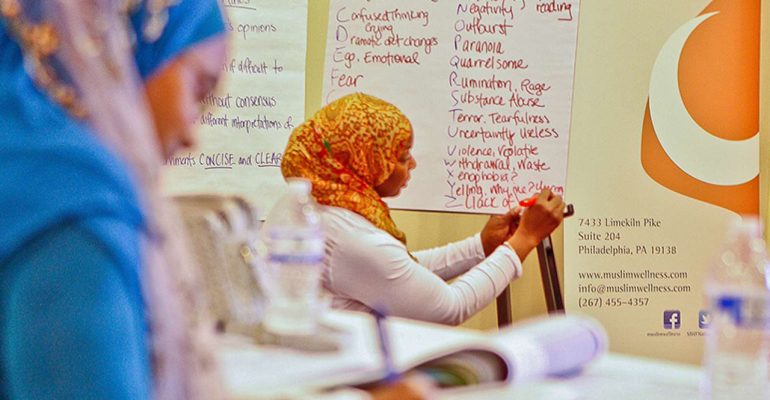How US mosques are dealing with Muslims’ mental health issues
January 9, 2018 2023-08-07 19:22How US mosques are dealing with Muslims’ mental health issues

How US mosques are dealing with Muslims’ mental health issues
In the United States, many Muslims are reluctant to seek out mental health professionals because of the stigma attached to mental illness or because they fear that a Western-trained therapist will not understand their culture or religion.
Instead, they turn to imams and other community leaders, who often quietly refer them to mental health professionals. But leaders of the Raleigh mosque, which draws thousands of worshippers a week, realized that mental health issues needed to be dealt with in a more professional and organized way and that the requests were inundating its two religious leaders.
A year ago, a group of mental health experts who are also mosque members agreed to volunteer their time to provide the service. Members can now go online and pick from among six mental health experts — including a family therapist, chaplain and a substance abuse counselor — for a free and confidential session. This new referral initiative started here in September and is part of a growing menu of social services nationwide aimed at addressing the needs of American Muslims, which have never been stronger.
Muslims in the U.S. are racially and ethnically diverse, with nearly 60 percent born abroad. As a minority — making up 1.1 percent of the U.S. population — they have suffered assaults and intimidation in the wake of Donald Trump’s presidency. The travel ban and the rise of nationalist rhetoric, which views immigrants as “other,” have contributed to feelings of being bullied, harassed and otherwise treated with suspicion.
Yet, many Muslims are wary of talking with outsiders about domestic violence or behavioral issues, for fear that may cast a bad light on the faith generally, said Kameelah Mu’Min Rashad, founder and president of the Muslim Wellness Foundation in Philadelphia. Providing mental health services through the mosque may provide cover as well as permission to access care, said Heather Laird, a psychologist who directs the Center for Muslim Mental Health and Islamic Psychology at the University of Southern California.
Continue reading at: Religion News Service (RNS)








